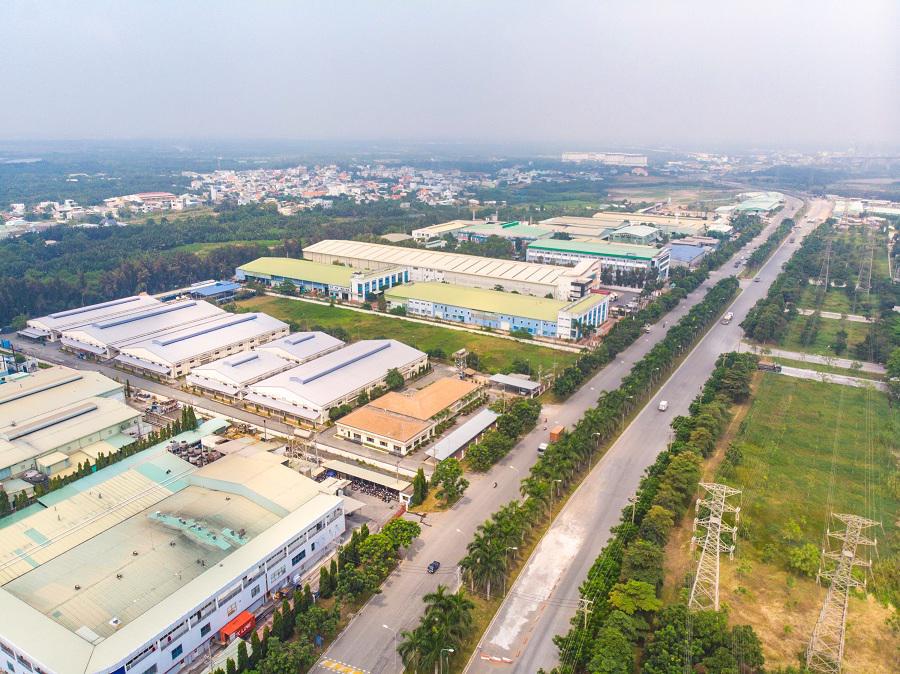Upcoming Law on industrial park – Vietnam’s passage to attract new foreign investment wave
Thứ 2, 26/08/2024
Administrator
456
Thứ 2, 26/08/2024
Administrator
456
The Ministry of Planning and Investment (MPI) proposes drafting the Industrial Park and Economic Zone Law, aimed at facilitating Vietnam's establishment of large-scale industrial parks to meet supply chain development requirements and promote green economic development in line with current trends.

A report from the MPI revealed that there are currently 416 industrial parks and over 1,000 industrial clusters nationwide. These industrial parks account for approximately 50% of the country's export turnover and significantly contribute to the state budget revenue.
Le Thanh Quan, Director of the Economic Zone Management Department under the Ministry of Planning and Investment, stated that industrial parks are crucial for attracting domestic and foreign investment projects, particularly leading global corporations.
“The development of industrial parks contributes to promoting the transfer of modern technologies, developing green investment ecosystems, creating a high-quality workforce, and providing various employment opportunities. As a result, it plays a significant role in promoting economic growth and enhancing social welfare,” said Quan during a recent conference discussing the new law.
However, alongside the achievements, Phan Huu Thang, former Director of the Foreign Investment Agency and Chairman of the Vietnam Industrial Parks Association, noted that there are still many existing challenges in the development and management of industrial parks. These include the inadequate development planning of industrial parks in some localities, slow innovation in industrial park development models, and the absence of ecological and urban-service industrial parks.
Regarding the development of green industrial parks without waste and with minimal negative impact on the environment, there are still significant challenges despite the issuance of Decree 35/2022/ND-CP on May 28, 2022, which regulates the management of economic zones and industrial parks, providing clear definitions of various types of industrial parks such as export processing zones, supporting industrial parks, specialized industrial parks, ecological industrial parks, high-tech industrial parks, expanded industrial parks, and industrial subzones.
Not only that, the regulations and development guidelines for industrial parks are scattered among many other legal documents in related areas such as land, construction, environment, and administrative procedures, and need further refinement. This is essential to accelerate the development of various types of industrial parks in line with green and high-tech development directions, Thang noted.
MPI’s report noted that feedback from some localities and enterprises indicates strong support for ecological and circular economy industrial parks, which aim to achieve sustainable development. However, achieving this is challenging due to complex legal regulations and overlapping legislation.
Economic experts believe that it is necessary to upgrade Decree 35/2022/ND-CP into law so that the regulations regarding ecological industrial parks are clearly and specifically defined in the new law to encourage investment in industrial parks. Additionally, it is essential to promote the transformation of traditional industrial parks into ecological industrial parks at the local level.
During a recent Government press briefing, Deputy Minister of Planning and Investment Do Thanh Trung stated that the MPI is proposing key policy groups within the law content to promote the development of industrial parks and economic zones, meeting the requirements of industrialization, modernization, and current trends such as green economy, digital economy, circular economy, and green energy.
First, there is a set of policies to support projects implementing sectoral linkages and cluster linkages within the scope of industrial parks and economic zones. The second policy group is to support specialized, professional, and high-value industrial park models. Therefore, criteria and regulations are needed to select secondary investment into these industrial parks to ensure the development objectives of specialized industrial parks.
The third policy group focuses on the development of modern, smart industrial parks that attract new investment fields such as digital economy, green economy, semiconductor, industrial materials, innovation, and creativity. At the same time, it is associated with the trend of using new energy, especially green and renewable energy in this area.
In addition, there is a group focused on the development of urban-complex industrial parks. These are industrial parks associated with urban and service development, where industry is the main target, creating employment and promoting industrialization, modernization, and economic restructuring.
Moreover, the MPI also proposes additional policies and regulations related to incentives for taxes, fees, financial policies, and capital particularly for enterprises operating in the ecosystem within specialized industrial parks. This ensures that enterprises are encouraged to invest in and develop these industrial parks.
Former Director of the Foreign Investment Agency Phan Huu Thang suggested promoting new types of industrial parks, and green industrial parks to attract high-quality investment, the financial capacity and implementation capacity of enterprises is crucial. There are many large domestic enterprises with sufficient capacity and infrastructure construction capacity for modern and green industrial parks, meeting the high standards of large corporations.
Deputy Minister Trung believes that with the six proposed policy groups in the content of the law, the MPI aims to amend regulations related to administrative procedures.
"This is one of the pilot measures that will entail new regulations to create more favorable conditions for investors in this area and draw lessons in improving the investment and business environment nationwide," Trung affirmed.
Nguồn: https://hanoitimes.vn/upcoming-law-on-industrial-park-vietnams-passage-to-attract-new-foreign-investment-wave-326773.html
:







